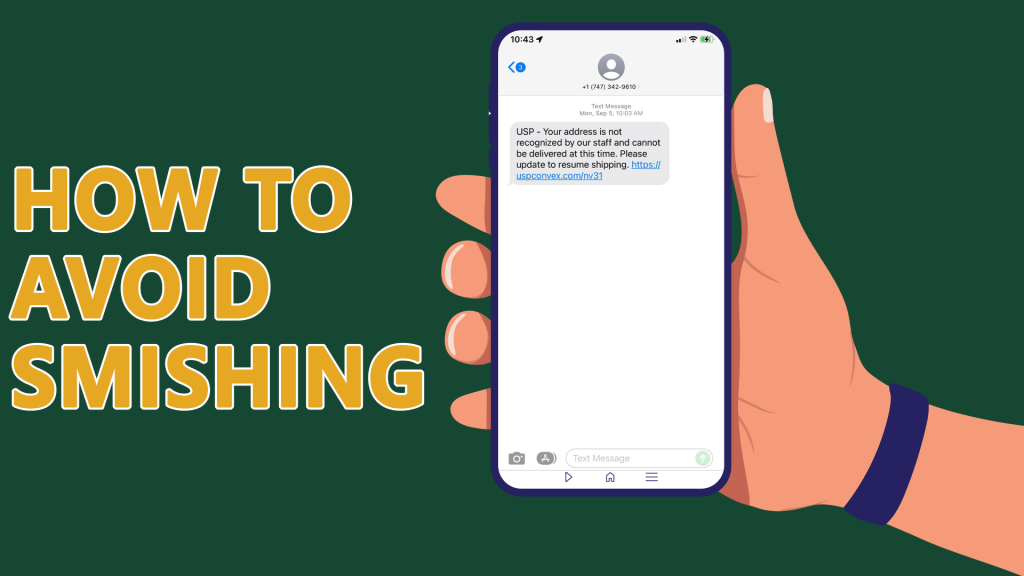
There are so many types of fraud, it’s hard to keep up with them all. That’s why it’s important to stay vigilant at all times to protect yourself from scammers.
Fraudsters know the more that people become aware of their scams, the less likely they are to work. So they are constantly adapting their techniques.
One newer scam that has seen a sizable uptick over the summer is smishing.
What is smishing? It’s similar to phishing. But instead of an unsolicited email, it’s through text messaging. The term smishing is a mashup of SMS – short messaging service (i.e. text messages) – and phishing.
A typical smishing message will seem like it’s from a bank, but it’s not just limited to fake banking messages. Recently, the United States Postal Service issued a media release warning against unsolicited text messages claiming that a USPS delivery needs immediate response. Other messages may appear to be from Costco, Home Depot, Amazon or other retailers.
No matter where the message says it’s from, one thing holds true – scammers are trying to gain your personal information.
The scammers are hoping to receive information such as: account usernames and passwords, Social Security number, date of birth, credit and debit card numbers, personal identification numbers (PINs) or other sensitive information. This information is used to carry out other crimes, such as financial fraud.
If you feel like the message may truly be authentic, you should still verify before sending information. If you get a text purportedly from a company or government agency, check your bill for contact information or search the company or agency’s official website. Call or email them separately to confirm whether you received a legitimate text. A simple web search can thwart a scammer.
The Federal Communications Commission offers these tips to avoid becoming a victim of a smishing attempt:
- Never click links, reply to text messages or call numbers you don’t recognize.
- Do not respond, even if the message requests that you “text STOP” to end messages.
- Delete all suspicious texts.
- Make sure your smart device’s operating system and security apps are updated to the latest version.
- Consider installing anti-malware software on your device for added security.
The bottom line – as it is in most attempted scams – is stop before automatically sharing your information, no matter how official it looks. Verify the authenticity of the message you receive. With due diligence, you can avoid becoming a victim of a scammer.
If you think that you are a victim of smishing, you should contact law enforcement to report the scam. You can also file a complaint with the FCC at no cost. If you have given your bank information to scammers, call your bank and inform them to see what your bank can do to protect your accounts.
Opinions expressed above are the personal opinions of the author and meant for generic illustration purposes only. RCB Bank, Member FDIC.
Sources:
https://www.fcc.gov/avoid-temptation-smishing-scams
https://www.uspis.gov/news/scam-article/smishing-package-tracking-text-scams



